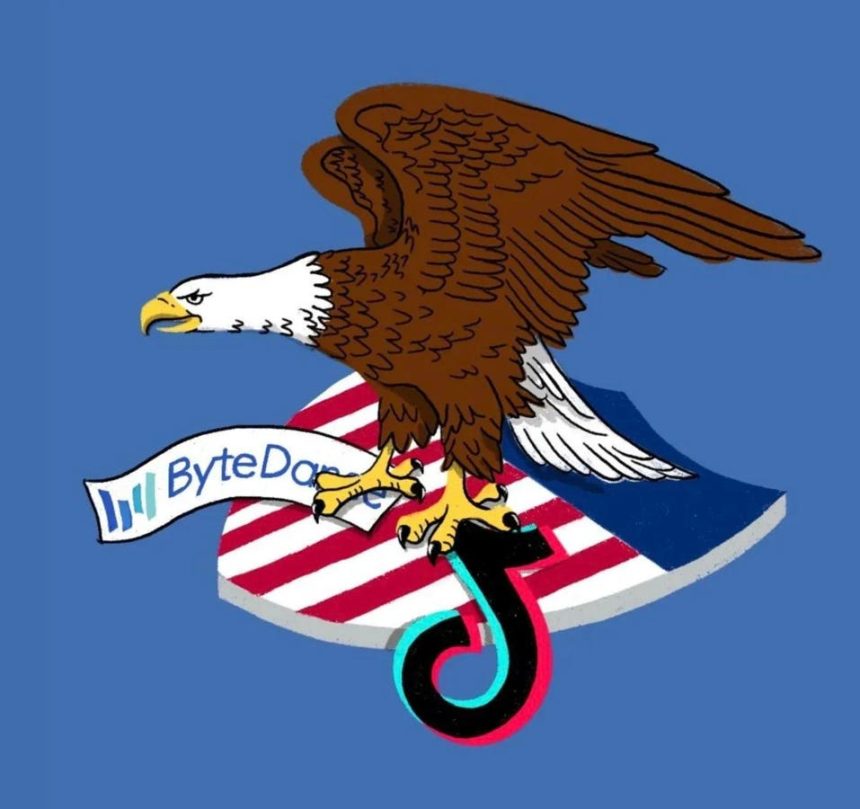The looming deadline of January 19, 2025, has intensified the standoff between the U.S. government and TikTok, the popular short-form video app owned by Chinese company ByteDance. A bipartisan effort spearheaded by the House China Select Committee has put pressure on TikTok, Apple, and Google to comply with the Protecting Americans From Foreign Adversary Controlled Applications Act, signed into law by President Biden earlier this year. This law mandates the divestiture of TikTok to a non-Chinese entity or faces a ban within the United States, driven by concerns about potential Chinese government influence and access to American user data. The Committee, led by Chairman John Moolenaar and Ranking Member Raja Krishnamoorthi, has issued stark reminders to the involved parties, emphasizing the legal ramifications of non-compliance.
The letters sent by the Committee underscore the urgency of the situation. Addressed to the CEOs of Apple, Google, and TikTok, the correspondence reiterates the legal obligation to remove TikTok from U.S. app stores if a qualified divestiture is not completed by the stipulated deadline. The Committee highlights the substantial period – 233 days – provided for ByteDance to find a suitable buyer, implying that ample opportunity has been given to fulfill the legal requirements. Failure to comply, the letters warn, will result in violations of the law, potentially exposing Apple, Google, and other hosting providers like Oracle and Amazon Web Services to significant financial penalties. The Committee emphasizes that the onus is on Apple and Google to ensure they are in full compliance by January 19th.
The letters also directly address TikTok CEO Shou Zi Chew, urging him to proactively pursue a qualified divestiture. This appeal reflects the Committee’s desire to see a resolution that avoids a complete ban of the platform, acknowledging its popularity and the potential disruption it would cause. However, TikTok and ByteDance have consistently maintained their unwillingness to sell, setting the stage for a potential legal showdown with far-reaching implications for the tech industry and online speech. This stance creates a significant impasse, as the law clearly demands divestiture while TikTok remains defiant, potentially leading to the platform’s removal from U.S. app stores if no solution is found.
The core issue driving this legislative action is the perceived threat of Chinese government influence over TikTok, fueled by concerns about potential surveillance and propaganda dissemination. The Protecting Americans From Foreign Adversary Controlled Applications Act was passed with broad bipartisan support, reflecting widespread apprehension about the potential risks posed by foreign-owned social media platforms. These concerns are rooted in the belief that the Chinese government could compel ByteDance to utilize TikTok for purposes detrimental to U.S. national security and user privacy. This underlying fear of data exploitation and manipulation of public opinion has been the primary catalyst for the government’s actions against TikTok.
TikTok’s legal challenge to the Act, arguing that a forced divestiture or ban infringes on First Amendment rights, was unsuccessful in the D.C. Circuit Court of Appeals. The court’s ruling, which interpreted the law as protecting Americans’ speech rights from foreign influence, presents a novel perspective on First Amendment jurisprudence. This decision, however, has not deterred TikTok, which has vowed to appeal to the Supreme Court, signifying its determination to fight the forced sale or ban. This escalation to the highest court underscores the significant constitutional questions raised by the case and sets the stage for a landmark ruling on the intersection of national security, free speech, and the regulation of foreign-owned technology platforms.
The potential ramifications of the January 19th deadline are substantial. If TikTok is removed from U.S. app stores, millions of American users will lose access to the platform, impacting content creators, businesses, and the broader online community. Furthermore, the discontinuation of TikTok’s agreements with American cloud providers could paradoxically increase the risk of data accessibility from China, undermining the very security concerns that motivated the legislation in the first place. This unintended consequence highlights the complexities of the situation and the challenges in balancing national security with user privacy and access to information. The upcoming weeks will be crucial in determining the future of TikTok in the U.S. and the broader landscape of online content regulation.



